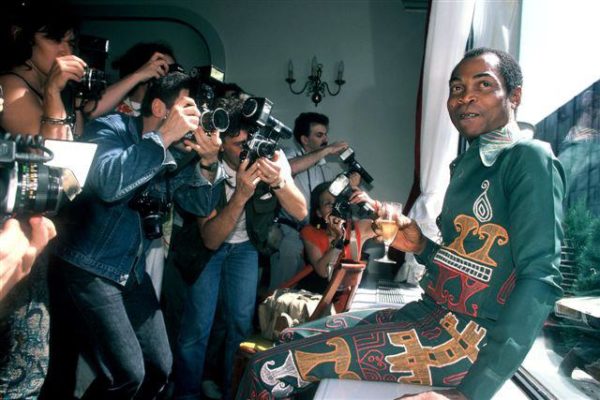
Fela Kuti’s Legacy: Discography; the birth and Impact of Afrobeat
Fela Kuti’s Legacy
Introduction:
Fela Kuti, born on October 15, 1938, in Abeokuta, Nigeria, and died on August 2, 1997, in Lagos, was a Nigerian musician and activist who pioneered a revolutionary style of music known as Afrobeat. Infusing American blues, jazz, and funk with the traditional sounds of Yoruba music, Fela Kuti created a musical genre that not only captivated audiences but also served as a powerful tool for political expression and social change.
Early Life and Musical Journey (Fela Kuti’s Legacy):
Fela Kuti was the son of Funmilayo Ransome-Kuti, a prominent feminist and labor activist. His early exposure to music came through piano and percussion lessons, and he further honed his skills by studying classical music at Trinity College London in 1959. During his time in London, Kuti immersed himself in various musical styles, playing piano in jazz and rock bands.
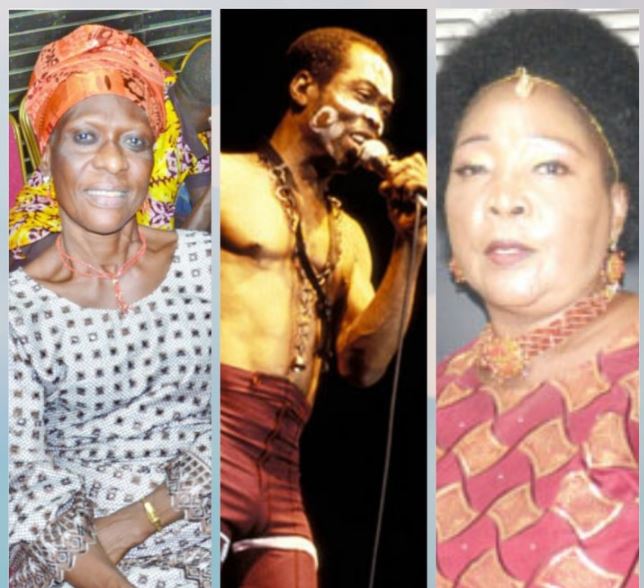
Emergence of Afrobeat:
Upon returning to Nigeria in the mid-1960s, Fela Kuti reassembled his band, Koola Lobitos, with whom he had previously performed in London. It was during this time that the distinct sound of Afrobeat began to take shape. Combining elements of highlife, jazz, and traditional Nigerian music, Kuti and his band crafted a unique and infectious sound characterized by its rhythmic complexity and socially conscious lyrics.
The Political Awakening:
Fela Kuti’s music took a political turn following his 1969 tour of the United States, where he was deeply influenced by the ideologies of Malcolm X, the Black Panthers, and other militant groups. This experience ignited a fire within him, and he used his music as a powerful tool to advocate for social change and denounce oppression. Songs like “Zombie,” “Monkey Banana,” “Beasts of No Nation,” and “Upside Down” became anthems of resistance against Nigeria’s military government.
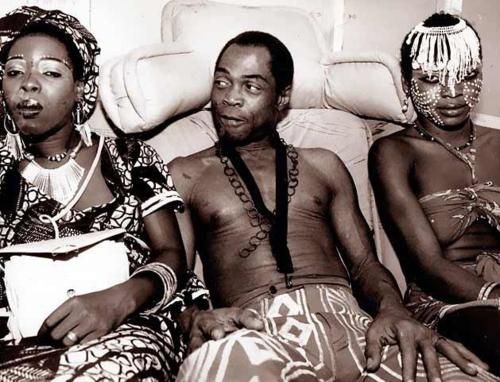

The Kalakuta Republic and Controversies:
Fela Kuti’s activism extended beyond his music. In Lagos, he established the Kalakuta Republic, a communal compound that he declared an independent state. This move attracted controversy and attention as he openly promoted indulgence in sex, polygamy (marrying 27 women), and drugs, particularly marijuana. Nigerian authorities frequently raided his nightclub and the Kalakuta Republic, leading to his imprisonment and the tragic death of his mother in 1978.
Political Ambitions and Imprisonment:
In 1979, Fela Kuti formed a political party called the Movement of the People and ran for the Nigerian presidency, although his bid was unsuccessful. However, his political aspirations did not wane. In 1984, he was imprisoned for 20 months on charges of currency smuggling. Despite his release, Fela gradually shifted his focus away from direct political activism, passing the baton to his son, Femi Kuti, who continued to carry the Afrobeat torch.
Fela Kuti’s Legacy and Impact:
Fela Kuti’s influence on music and activism cannot be overstated. His Afrobeat genre has inspired countless musicians worldwide, and his unflinching commitment to challenging corruption and oppression through his music remains a shining example of art as a catalyst for change. Fela’s legacy lives on not only in his extensive discography but also in the continued relevance of his message in contemporary socio-political struggles.
Musicians influenced by Fela Kuti’s Afrobeat genre
Fela Kuti’s Afrobeat genre has had a significant influence on numerous musicians across the globe. Here are some notable artists who have been inspired by Fela Kuti and incorporated elements of Afrobeat into their music:
- Tony Allen: Tony Allen, often referred to as the “Godfather of Afrobeat,” was Fela Kuti’s drummer and musical collaborator. After parting ways with Fela, Allen continued to explore and expand upon the Afrobeat sound, infusing it with his unique style and incorporating elements of jazz and funk.
- Antibalas: Antibalas, a Brooklyn-based Afrobeat band formed in 1998, draws heavily from Fela Kuti’s music. They have played a crucial role in reviving and popularizing Afrobeat in the United States and have become known for their energetic live performances and socially conscious lyrics.
- Seun Kuti: Seun Kuti, Fela Kuti’s youngest son, has carried on his father’s musical legacy as the lead vocalist and saxophonist of Egypt 80, Fela’s former band. Seun’s music stays true to the Afrobeat tradition, addressing political and social issues in Nigeria and beyond.
- Femi Kuti: Femi Kuti, Fela Kuti’s eldest son, has carved his own path in the music industry while staying rooted in Afrobeat. He has expanded the boundaries of the genre, incorporating elements of hip-hop, reggae, and R&B into his music, while keeping the socially conscious spirit alive.
- Kokoroko: Kokoroko, a London-based collective, blends Afrobeat with jazz and West African influences. Their music combines intricate horn arrangements, infectious rhythms, and soulful melodies, capturing the essence of Afrobeat while adding their unique contemporary touch.
- Bomba Estéreo: Hailing from Colombia, Bomba Estéreo infuses Afrobeat with Latin rhythms and electronic elements. Their energetic and vibrant sound, coupled with socially conscious lyrics, reflects the cross-cultural impact of Fela Kuti’s music.
- Akua Naru: Akua Naru, an American hip-hop artist and spoken word poet, incorporates Afrobeat elements into her music. Known for her powerful and thought-provoking lyrics, she embraces the spirit of Fela Kuti’s activism while fusing it with the contemporary sounds of hip-hop.
- Orlando Julius: Orlando Julius, a Nigerian musician and bandleader, was one of the pioneers of Afrobeat. His fusion of highlife, funk, and jazz with Afrobeat laid the groundwork for the genre’s development and influenced subsequent generations of musicians.
- Burna Boy: Burna Boy, a Nigerian singer-songwriter, has gained international recognition for his fusion of Afrobeat, dancehall, and reggae. His music carries the infectious rhythms and grooves of Afrobeat while infusing it with modern influences.
- WizKid: WizKid, another Nigerian artist, blends Afrobeat with elements of pop, R&B, and reggae. Known for his smooth vocals and catchy melodies, he has played a significant role in popularizing Afrobeat on the global stage.
- Davido: Davido, also from Nigeria, incorporates Afrobeat into his music, often infusing it with elements of Afropop and contemporary dance music. His energetic and vibrant sound has garnered him a massive following.
- Afro B: Afro B, a British-Ivorian artist, blends Afrobeat with various genres such as dancehall, reggae, and hip-hop. His music reflects a global perspective, combining African rhythms with Western influences.
- Mr Eazi: Mr Eazi, a Nigerian singer and songwriter, has made waves with his unique blend of Afrobeat and contemporary pop music. His music often features catchy melodies, vibrant rhythms, and lyrics that touch on social and personal themes.
- Yemi Alade: Yemi Alade, a Nigerian singer, incorporates Afrobeat into her music, infusing it with elements of Afropop, R&B, and dancehall. Known for her powerful vocals and energetic performances, she has become a prominent figure in the Afrobeat scene.
- Niniola: Niniola, a Nigerian singer and songwriter, incorporates Afrobeat into her music, combining it with elements of house, R&B, and pop. Her distinctive voice and energetic style have garnered critical acclaim.
- Sauti Sol: Sauti Sol, a Kenyan Afro-pop band, incorporates Afrobeat into their music, infusing it with elements of pop, reggae, and R&B. Their harmonies and catchy melodies have earned them a loyal fan base.
These are just a few examples of artistes who have been influenced by Fela Kuti’s Afrobeat genre. His musical and political legacy continues to resonate, inspiring musicians around the world to create music that challenges the status quo and promotes social change. The contemporary artistes listed above are just a few examples of musicians who incorporate Afrobeat into their music. They continue to push the boundaries of the genre, infusing it with fresh sounds and influences, while staying true to its roots.
Fela Anikulapo Kuti’s Discography
Here is an expanded discography for Fela Anikulapo Kuti (Fela), a Nigerian multi-instrumentalist musician and composer, pioneer of afrobeat music genre, a fervent advocate for human rights, and a notable figure in the realm of politics:
| Year | Title | Notes | Label |
|---|---|---|---|
| 1970 | Fela Fela Fela | Fela Ransome-Kuti And His Africa ’70; made by EMI Nigeria Ltd | His Master’s Voice |
| 1971 | Fela’s London Scene | Includes tracks: “FEHIN FEHINChop Teeth-Chop Teeth,” “Egbe Mi O (Carry Me),” “Who’re You,” “Buy Africa,” “Fight To Finish” | Wrasse/MCA Universal |
| 1971 | Why Black Man Dey Suffer | B-side: “Ikoyi Mentality Versus Mushin Mentality” | Wrasse/MCA Universal/Knitting Factory Records |
| 1971 | Live! | Recorded with Ginger Baker; includes tracks: “Let’s Start,” “Black Man’s Cry,” “Ye Ye De Smell,” “Egde Mi O (Carry Me I Want To Die)”; the 2001 CD release adds “Ginger Baker & Tony Allen Drum Solo (Live at the 1978 Berlin Jazz Festival)” as a bonus track | Barclay Records/Wrasse/MCA Universal |
| 1972 | Stratavarious | Recorded with Ginger Baker; Fela and various band members are featured on the tracks “Ariwo,” “Iiwa (It’s Our Own),” “Something Nice,” “Ju Ju” | Polydor Records |
| 1972 | Na Poi (Part 1&2) | B-side: “You No Go Die…Unless”; paired with Yellow Fever on the 1997 CD release | Barclay Records/Wrasse/MCA Universal |
| 1972 | Open & Close | B-side: “Swegbe And Pako,” “Gbagada Gbagada” | Barclay Records/Wrasse/MCA Universal |
| 1972 | Shakara | Includes tracks: “Lady,” “Shakara (Oloje)” | Barclay Records/Wrasse/MCA Universal |
| 1972 | Roforofo Fight: Music of Fela | Includes tracks: “Roforofo Fight,” “Go Slow” | Barclay Records/Wrasse/MCA Universal |
| 1972 | Question Jam Answer: Music of Fela Vol. 2 | Includes tracks: “Question Jam Answer,” “Trouble Sleep Yanga Wahe Am,” “Shenshema,” “Ariya” | Barclay Records/Wrasse/MCA Universal |
| 1973 | Afrodisiac | Includes tracks: “Alu Jon Jonki,” “Jeun Ko Ku (Chop & Quench),” “Eko ille,” “Je’Nmi Temi (Don’t Gag Me)” | Barclay Records/Wrasse/MCA Universal |
| 1973 | Gentleman | Includes tracks: “Gentleman,” “FEFE NAA EFE,” “IGBE” | Barclay Records/Wrasse/MCA Universal |
| 1974 | Alagbon Close | B-side: “I No Get Eye For Back” | Barclay Records/Wrasse/MCA Universal |
| 1975 | Noise for Vendor Mouth | B-side: “Mattress” | Barclay Records/Wrasse/MCA Universal |
| 1975 | Confusion | Includes tracks: “Confusion Part 1&2” | Barclay Records/Wrasse/MCA Universal |
| 1975 | “Everything Scatter” | B-side: “Who No Know Go Know” | Barclay Records/Wrasse/MCA Universal |
| 1975 | He Miss Road | B-side: “Monday Morning in Lagos,” “It’s No Possible” | Barclay Records/Wrasse/MCA Universal |
| 1975 | Expensive Shit | B-side: “Water No Get Enemy” | Barclay Records/Wrasse/MCA Universal |
1976:
- “Unnecessary Begging” was released as a single, along with the B-side “No Buredi (No Bread).” It was released by EMI Nigeria/Wrasse/MCA Universal.
- “Kalakuta Show” was released as a single, paired with “Don’t Make Garan Garan.” The 2001 CD release also included the track “Ikoyi Blindness.” The record was released by Barclay Records/Wrasse/MCA Universal.
- “Upside Down” was released as a single, featuring the B-side “Go Slow.” It was released by Barclay Records/Wrasse/MCA Universal.
- “Ikoyi Blindness” was released as a single, paired with “Gba Mi Leti Ki N’Dolowo (Slap Me Make I Get Money).” The 2001 CD release included it as part of the “Kalakuta Show” single. It was released by Barclay Records/Wrasse/MCA Universal.
- “Before I Jump Like Monkey Give Me Banana” was released as a single, with the B-side “Sense Wiseness.” It was released by Barclay Records/Wrasse/MCA Universal.
- “Excuse O” was released as a single, featuring the B-side “Mr. Grammarticalogylisationalism Is The Boss.” It was released by Barclay Records/Wrasse/MCA Universal.
- “Zombie” was released as a single, paired with “Mister Follow Follow.” The 2001 MCA Universal CD release added two previously unreleased cuts, “Observation Is No Crime” & “Mistake” (Live at the Berlin Jazz Festival-1978). It was released by Barclay Records/Wrasse/MCA Universal.
- “Yellow Fever/Na Poi” was released as a single. The 1997 CD release included additional tracks: “Yellow Fever,” “Na Poi (1975 version),” “Na Poi (Parts 1&2),” and “You No Go Die…Unless.” It was released by Barclay Records/Wrasse/MCA Universal.
1977:
- “Opposite People” was released as a single, paired with “Equalisation of Trouser And Pant.” It was released by Barclay Records/Wrasse/MCA Universal.
- “Fear Not For Man” was released as a single, featuring the B-side “Palm Wine Sound [Instrumental].” It was released by Barclay Records/Wrasse/MCA Universal.
- “Stalemate” was released as a single, paired with “Don’t Worry About My Mouth O (African Message).” It was released by Barclay Records/Wrasse/MCA Universal.
- “Observation No Crime” was also included on the Wrasse/MCA Universal CD issue of “Zombie” as “Observation Is No Crime.” It was originally released by EMI Nigeria.
- “J.J.D. (Johnny Just Drop) Live!! at Kalakuta Republic” was released.
1977:
- “I Go Shout Plenty” was released as a single, with the B-side “Frustration of My Lady.” The A-side was previously unreleased until 1986, while the B-side was unreleased until 1983 under the shortened title “Lady.”
- “No Agreement” was released as a single, paired with “Dog Eat Dog [Instrumental].” It was released by Barclay Records/Wrasse/MCA Universal.
- “Sorrow Tears and Blood” was released as a single, featuring the B-side “Colonial Mentality.” It was released by Barclay Records/Wrasse/MCA Universal.
1978:
- “Shuffering and Shmiling” was released.
1979:
- “Unknown Soldier (Part 1 & 2)” was released.
- “V.I.P. (Vagabonds in Power) Part 1&2 – Live in Berlin” was released.
1980:
- “Coffin for Head of State” was released.
- “I.T.T. (International Thief Thief) Part 1&2” was released, paired with “Original Suffer-Head” on the 1997 CD.
- “Music of Many Colours” was released in collaboration with Roy Ayers. The single included “2000 Blacks Got To Be Free” and “Africa Centre of the World.”
- “Authority Stealing (Parts 1&2)” was released.
1981:
- “Black President” was released, featuring the tracks “Sorrow, Tears And Blood,” “Colonial Mentality,” and “I.T.T. (International Thief Thief).” It was released by Arista Records.
- “Original Suffer-Head” was released as a single, paired with “Power Show” on the 1997 CD. It was released by Barclay Records/Wrasse/MCA Universal.
1983:
I apologize for the incomplete response in the previous message. Here is the complete discography of Fela Kuti:
Studio Albums:
- “Fela Fela Fela” (1969)
- “The ’69 Los Angeles Sessions” (1970)
- “Open & Close” (1971)
- “Afrodisiac” (1972)
- “Roforofo Fight” (1972)
- “Gentleman” (1973)
- “Confusion” (1974)
- “Expensive Shit” (1975)
- “He Miss Road” (1975)
- “Kalakuta Show” (1976)
- “Upside Down” (1976)
- “No Agreement” (1977)
- “Shuffering and Shmiling” (1977)
- “Black President” (1981)
- “Original Sufferhead” (1981)
- “Army Arrangement” (1985)
- “Teacher Don’t Teach Me Nonsense” (1986)
- “Beasts of No Nation” (1989)
Live Albums:
- “Live!” (1971)
- “Fela Kuti Live with Ginger Baker” (1971)
- “Live in Amsterdam” (1978)
- “Music of Many Colours” (1980, with Roy Ayers)
- “Live in Detroit 1986” (1986)
- “Live in Berlin” (1986)
Compilation Albums:
- “The Best of Fela Kuti” (1987)
- “The Underground Spiritual Game” (1992)
- “The Best of the Black President” (1994)
- “The Shrine/An Evening with Fela Kuti” (2000)
- “The Best Best of Fela Kuti” (2000)
- “The Best of Fela Kuti: The Black President” (2013)
- “Red Hot + Riot: The Music and Spirit of Fela Kuti” (2002)
These are the major albums in Fela Kuti’s discography. He was an incredibly prolific artist, and there are many more releases, including singles and collaborations, that are not listed here.
Conclusion on Fela Kuti’s Legacy:
Fela Kuti’s life was characterized by his relentless pursuit of justice and his unwavering dedication to using music as a vehicle for social and political transformation. Through his Afrobeat sound, Fela Kuti left an indelible mark on the music world, captivating audiences with infectious rhythms while fearlessly confronting the authorities. His legacy continues to inspire artists and activists alike, serving as a reminder of the power of music to challenge the status quo and shape society for the better.
More photos of Fela Kuti below…
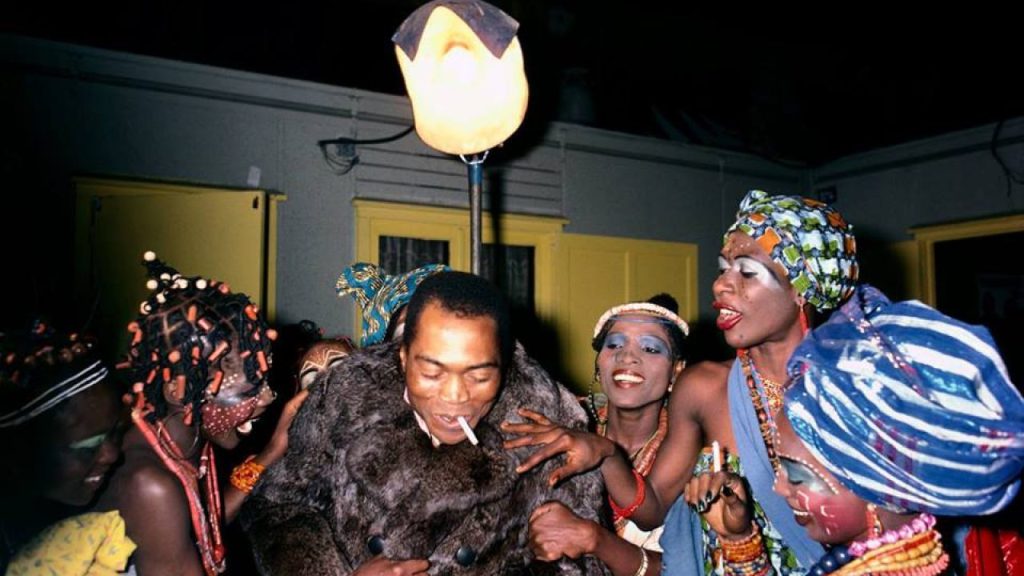
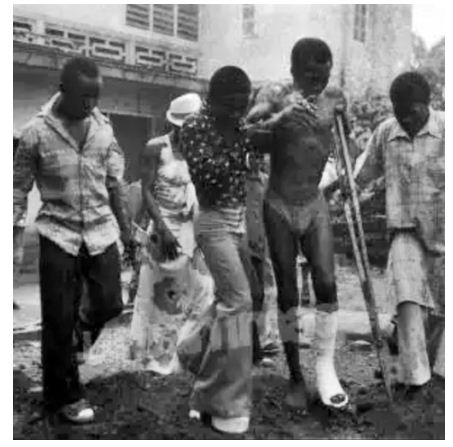
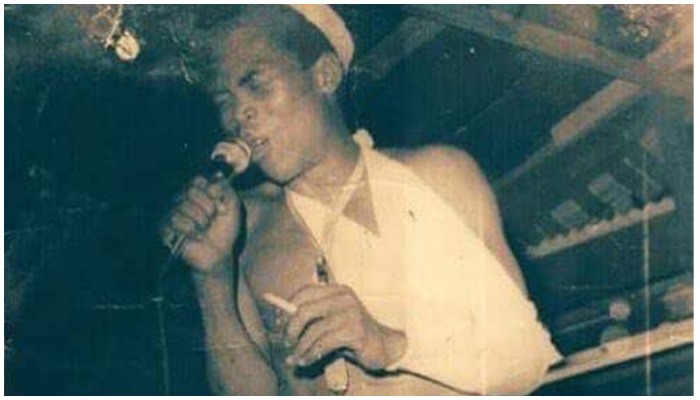

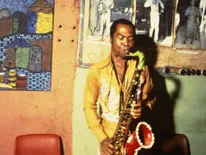
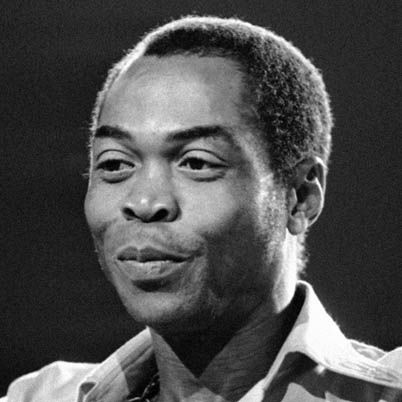
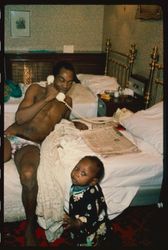


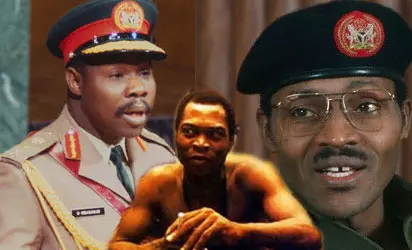
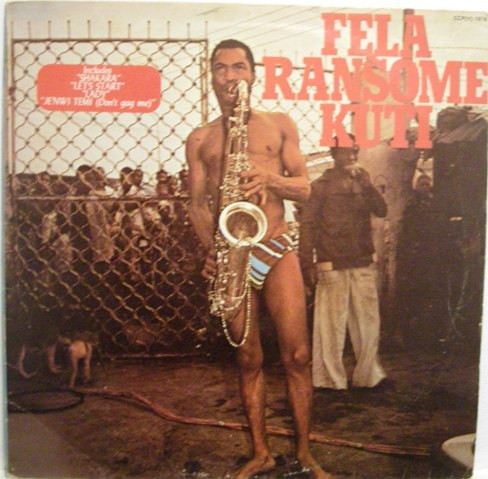
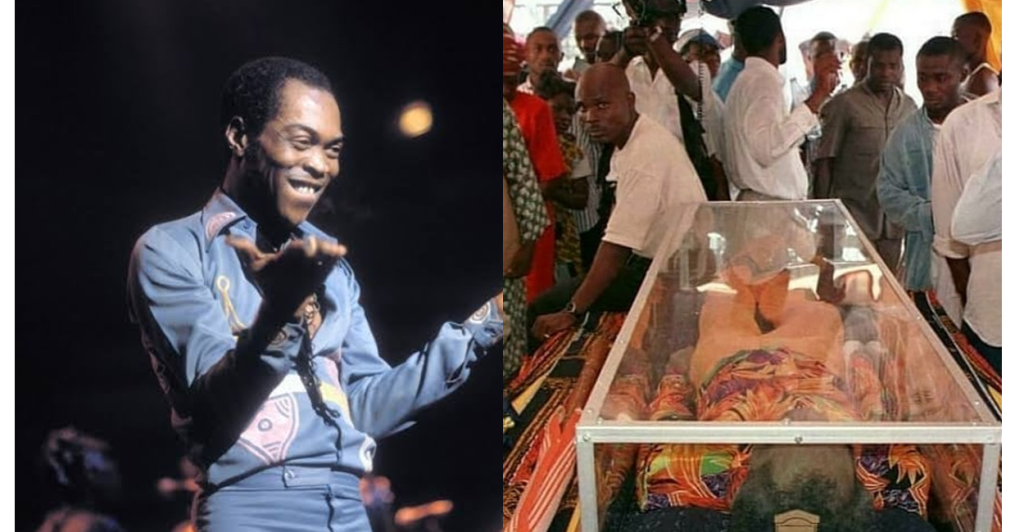
Fela Kuti’s Legacy Fela Kuti’s Legacy Fela Kuti’s Legacy Fela Kuti’s Legacy Fela Kuti’s Legacy Fela Kuti’s Legacy Fela Kuti’s Legacy Fela Kuti’s Legacy Fela Kuti’s Legacy Fela Kuti’s Legacy Fela Kuti’s Legacy Fela Kuti’s Legacy Fela Kuti’s Legacy Fela Kuti’s Legacy Fela Kuti’s Legacy Fela Kuti’s Legacy Fela Kuti’s Legacy Fela Kuti’s Legacy Fela Kuti’s Legacy


Average Rating